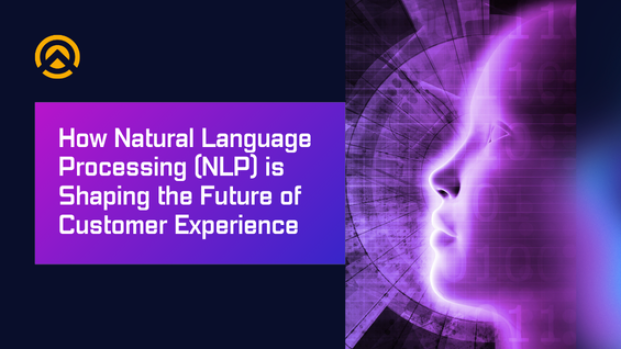Table of Contents
ToggleBusinesses are always seeking ways to know their clientele better and now they are using AI to help them. One of the AI is NLP which is a new technique that aids in training machines to not only translate but even develop a proper text in human language
Consider a scenario where you are managing a customer support system in your office. A customer fills a complaint about the frequent issue he or she is having and explains it in a normal language like my account, it keeps on logging me out. and in this situation natural language processing will not only record the words but understand the context, identifying it as an authentication issue and automatically categorizing the issue. and then with the help of the NLP technical team will get to know the issue and find the solution. This is the seamless processing of a natural language process that works like magic and is capable of enhancing the overall operational efficiency.
Let us explore how NLP is revolutionizing customer experiences, from chatbots providing instant technical support to integrated systems interpreting customer sentiments, and discover the future of customer experience with Natural Language Processing.
What is NLP?
Natural language processing (NLP) is one of the most famous types of artificial intelligence, focusing on the connection between computers and humans, making it possible for better communication. NLP aims to prepare systems to read, understand, and respond like humans. Essentially, NLP allows computers to handle vast data that includes both text and spoken data, providing responses exactly as humans do. There are many types of NLP that we understand and might not agree to embrace, including chatbots, virtual assistants, and automated customer service.
NLP is constructed upon several crucial parts, like language comprehension, language production, sentiment estimation, and dialogue-making. These capabilities are based on important enabling technologies such as machine learning and deep learning, which enable the system to learn from a dataset and enhance its ability to progress. One of the most sophisticated fields of activity in NLP is the application of deep learning, which primarily trains machines to work with complex language structures. All this indicates that NLP is one of the main tools that can help improve customer experience in the digital environment. Additionally, with AI automation solutions, NLP technologies can further optimize customer interactions, making them more personalized and efficient for businesses.
Benefits of Natural Language Processing in Customer Experience
Natural Language Processing (NLP) is transforming customer service by helping the business and providing benefits like real-time communication, personalized support, and many more. Let’s discuss the benefits of NLP in customer service:
1. Improved Accuracy in Responses
NLP’s are Advanced techniques with the support of contextual word models, such as BERT and GPT, to decode the customers’ requests with unique precision. Using syntax, semantics, and context analysis it is possible to achieve accuracy rates in NLP systems with the percentage of 90. This strictly minimizes cases of uncertainty in user queries thereby improving the ability to understand customer intent. NLP systems can also pick up differences in phrasing, such as when users prefer certain words over others, or dialects and industry types, which keeps responses specific, and truly helpful. These capabilities are instrumental in raising customers’ satisfaction and shortening the time of solution finding.
2. Round-the-clock Availability
Self-served NLP systems with the help of chatbots and virtual personal assistants guarantee constant customer support without any human interaction. Natural language is established on sound architectures that help it understand customer questions, translate them and supply the most suitable answer immediately. If businesses have clients around the world then these are the best systems for helping to be available around the clock. if we see the ratio on an average most of the clients want customer service to be available 24/7.
3. Ability to Scale Customer Support Effortlessly
Various industries can cope with a large number of customers, contacting companies by using NLP applications since they do not drag down the performance. Such models do not experience fatigue or cognitive overload like human operators and can work with a vast number of customer queries simultaneously. Achieving this scalability is made possible by cloud-based architectures and complicated parallel processing algorithms. Thanks to self-attention type approaches, such as GPT, it becomes possible for NLP systems to analyze and respond to several interactions simultaneously while enhancing the support services for modern large-scale corporations.
4. Understanding Customer Emotions with Sentiment Analysis
Incorporating sentiment analysis, NLP systems can control emotions and tones in customer messages using recognizing words, their situation in the message, and the context in which emotions are involved. This ability of AI will allow the business to sort through emails efficiently. Also, prioritize those messages, emails that need immediate attention, and also those that are kind of provoking. For example, the system flags messages with high levels of negative text for manual handling. Research shows that 71% of consumers expect empathy and commitment and real-time sentiment analysis can make compassionate responses happen quicker than ever. As a result, businesses improve customer retention and loyalty through more efficient actions.
5. Support Across Multiple Languages
Entities like multilingual BERTs are built to support multilinguals to directly engage customers from all over the world, avoiding the need to hire individual agents for each language. By the use of cross-lingual embeddings, these models can efficiently and effectively process, comprehend, and generate text in many languages as well as allow a seamless interaction with customers irrespective of the form of the languages used. Research shows that 75% of consumers will be comfortable shopping from brands that offer services in their local language. Multilingual support through applications Artificial intelligence in NLP solves language barriers by ensuring that an organization delivers quality services to its customers as well as accessing more markets.
6. Boosting Cost Efficiency in Customer Service
The ability to adapt customer queries by introducing NLP technologies in chatbots and virtual assistants can decrease operational cost effective by as much as 30%. While performing simple tasks such as answering frequently asked questions, resetting passwords, tracking orders, and other simple user tasks, the NLP systems minimize their intrusions on human agents, smartening up the workforce. According to Gartner research, customer service automation that employs AI agent could reduce customer-related losses of as much as $80 billion by 2025. Further, these systems enable quick, effective responses and lead to increased customer satisfaction; in the meantime, businesses will not require major hiring of employees for customer service-oriented jobs.
Applications of Natural Language Processing
- Smart Chatbots – NLP-powered chatbots help customer requests efficiently by understanding text that is based on context and intent and responding accurately in real-time. Also, virtual agents take care of routine jobs and further discuss complex problems with humans, making it more convenient.
- Voice Recognition Systems – NLP allows voice-to-text generation that helps to assist customer service. These systems can understand different accents and the environment.
- Email Response Automation – With the help of NLP businesses can auto-reply emails for timely responses. It detects the urgency of emails and offers pre-built responses to improve efficiency.
- Analysing Social Media – NLP helps analyze social media for intelligence data and sentiment analysis in real-time. Using these insights brands can get involved with customers and manage their reputation.
- Customer Feedback Analysis – Businesses can Analyze customer feedback by using NLP tools to run surveys and reviews and extract insights. These systems help businesses find what trends are going on and areas that require urgent enhancement.
The Future of Natural Language Processing in Customer Experience
NLP technology is getting better at helping customer queries with more advanced memory. NLP systems will use machine learning to have a better understanding of context and customer insights for hyper-personalized support. Future software will understand human emotion and answer accordingly. For example, if you are frustrated, take the help of a customer care chatbot. As a result, customer satisfaction will increase with human-like interaction. Additionally, better multilingual models eliminate language barriers, enabling them to assist global customers without translation delays or errors.
Thus, customer service will be predictive, meaning the system will figure out what the user will need and fix any issues that go unnoticed. These AI automation systems will spot patterns in customers’ previous behavior and suggest a specific solution that customers appreciate. Voice-enabled AI tools will continue to grow in popularity in 2023 with customers using them to speak with brands. Real-time data processing will simplify workflows and allow customer service departments to resolve issues more quickly and offer personalized engagement. For organizations looking to harness the full potential of NLP, Natural Language Processing Consulting can help guide the development and implementation of these advanced technologies, ensuring they deliver optimal results for customer experience.
Final Words
NLP is helping businesses by providing automation and personalization solutions and also transforming the customer experience with technology. Despite the limitations, up until this point, technology has advanced and is overcoming the limitations. Using NLP in customer service is not a technological upgrade; it is a new way to interact with customers. It is a revolution in customer service. As technology matures, we will see further applications that refine consumer experience further down the line.






